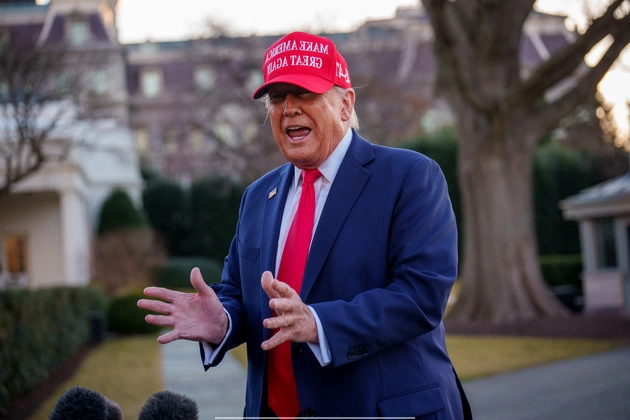
Progressive Perspectives on the Ceasefire: Trump's Role in Middle East Diplomacy
President-elect Donald Trump was quick to take credit for the cease-fire struck Wednesday between Israel and Hamas — and progressive critics of the Biden administration’s approach to the conflict were quick to give it to him.
Pro-Palestinian Perspective
Pro-Palestinian activists and progressives argued that the agreement, which comes after 15 months of war and the deaths of more than 46,000 Palestinians, should have happened sooner. Trump was able to do what President Joe Biden did not in more than a year of talks, some said, pressuring Israeli Prime Minister Benjamin Netanyahu to withdraw military forces from the Gaza Strip.
Insights from Matt Duss
“[Trump] made clear he wanted this war to end and pressed Netanyahu on it in a way that Biden clearly wasn’t willing to do,” said Matt Duss, executive vice president of the Center for International Policy.
Though the broad outline of the deal hasn’t changed much, the context has. Biden is departing, and Netanyahu might be eager to take a different approach with the next administration. “Trump has made clear what he wants, he has his own priorities, and I think it was clearly the unconditional support that Biden gave that provided cover for Netanyahu to continue to prosecute this war, and also that there would be no costs for ignoring either private or public criticisms from the United States,” said Duss, a former foreign policy aide for Sen. Bernie Sanders (I-Vt.). “That calculus has changed.”
Skepticism and Caution
Still, some of those leaders cautioned they’re skeptical the agreement will lead to a permanent end to the war — and that Israel will abide by its terms. Under the deal, which needs to be approved by the Israeli Cabinet, dozens of hostages will be released and a six-week pause in fighting will start Sunday.
Biden’s Response and Trump’s Involvement
Speaking from the White House, Biden said he was pleased to announce the agreement “at long last” and that the terms of the deal resemble an offer he made in May. The cease-fire is a high point for Biden as he works to cement his legacy in the waning days of his presidency.
Yet Trump, whose team was involved in the final days of talks, got out in front of the White House and posted about the deal before Biden officials made it public. On the campaign trail, Trump repeatedly promised that it would be his leadership that would bring a stop to the conflict.
Expert Analysis and Critique
Some foreign policy experts said the agreement should be seen as Netanyahu’s political gift to Trump to curry favor as he prepares to take office in just a few days. They were also quick to caution that the deal doesn’t mean Trump should now be viewed as a strong ally for the Palestinian cause, given some of his Cabinet appointments and decisions during his first term, like recognizing Jerusalem as the capital of Israel.
Impact on Domestic Politics
The enduring war in Gaza, and the Biden administration’s steadfast support of Israel, has caused political turbulence for Democrats, and came to be a major issue in the presidential campaign. Not only was Vice President Kamala Harris criticized by those calling for a cease-fire to adequately distance herself from Biden on Gaza — she lost support from Arab Americans and college students in Michigan.
Community Reactions
Leaders of the Uncommitted movement, who are responsible for organizing the largest protests over the Biden administration’s stance, called the cease-fire “a long-overdue pause in a campaign that has obliterated families, erased neighborhoods, and caused unimaginable suffering.” The group cited a recent YouGov poll that found 29 percent of non-voters who supported Biden in 2020 cited ending the war in Gaza as the main reason they chose not to vote for Harris.
Local Perspectives
Trump benefited from that fracturing of the Democratic base over Gaza. He picked up a surge in support in Dearborn, Michigan, home to a large population of Muslims with familial ties to the Middle East. Arab leaders in Dearborn, however, cautioned that that swing was not an endorsement of Trump but rather a rejection of Harris and the Democratic party’s embrace of Israel.
Critical Reflection
“Today’s announcement is welcome news to all of us that this cycle of violence will end,” said Sam Baydoun, Wayne County Commissioner in Dearborn. But he added that he feels “disappointed” that this was the same deal proposed in May but the Biden administration failed to successfully pressure Netanyahu to accept it until now.
Conclusion
In conclusion, the recent ceasefire in the Middle East has sparked diverse reactions, with progressives acknowledging Trump’s role while also expressing caution and skepticism. The implications of this agreement on both domestic and international politics are significant, highlighting the complexities of diplomacy in the region.















